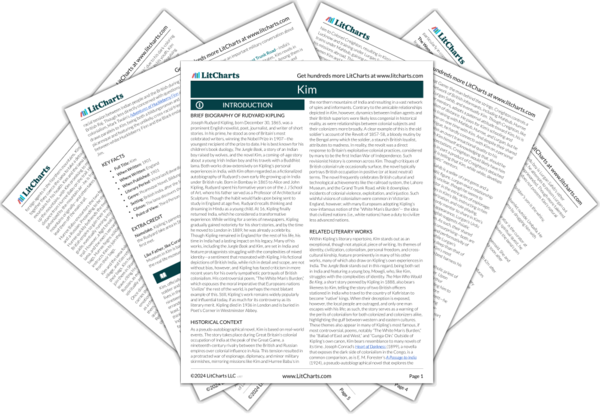Here, Kim reveals his vision of truth, describing the material world—in all its dynamism and imperfection— as the “world in real truth.” This contrasts dramatically with the lama’s worldview, in which the material world is merely an illusion, suggesting that ideological differences need not necessarily prohibit companionship. In fact, it is this very contrast that makes Kim and the lama so compatible, complementing each other’s skillsets and knowledge.
